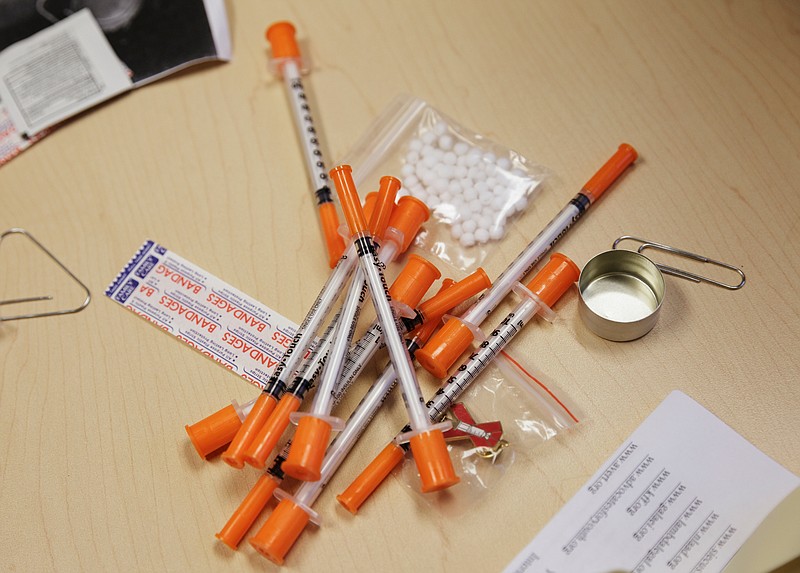Clinic Locations:
Chattanooga-Hamilton County Health Department, 921 E. 3rd St., Chattanooga, TN, 37403, 423-209-8340Birchwood Health Center, 5625 Hwy 60, Birchwood, TN, 37308, 423-961-0446Homeless Health Care Center, 730 E. 11th St, Chattanooga, TN, 37403, 423- 265-5708Ooltewah Health Center, 5520 High St., Ooltewah, TN, 37363, 423-238-4269Sequoyah Health Center, 9527 West Ridge Trail Road, Soddy-Daisy, TN, 37379, 423-842-3031
Chattanooga is the latest city to be swept up in a multistate outbreak of hepatitis A, a contagious, vaccine-preventable viral infection that damages the liver.
Typically, about one case a year is reported in Hamilton County, but four cases have been reported since early May, according to a notice released Thursday from the Chattanooga-Hamilton County Health Department.
As of June 19, the Tennessee Department of Health had reported 42 cases in the state since Dec. 1, 2017, with the majority of cases - 26 - in the Nashville area and six cases in the mid-Cumberland region. Other states affected include Arkansas, California, Indiana, Kentucky, Michigan, Missouri, Utah and West Virginia.
Health department officials want residents to know of actions they are taking to prevent the spread of the disease, including investigating cases, monitoring for new ones and educating the community.
"Hepatitis A usually spreads by the fecal-oral route through ingestion of contaminated food or drinks, close person-to-person contact with an infected person, and sexual contact with an infected person," said Dr. Valerie Boaz, health officer for the Chattanooga-Hamilton County Health Department.
Symptoms include fever, fatigue, loss of appetite, nausea, vomiting, abdominal pain, dark urine, clay-colored bowel movements, joint pain and yellowing of the skin, also known as jaundice.
Hepatitis A vaccines are safe and effective and were first available in the United States in 1995. In 2011, the vaccine became required for kindergarten entry in Tennessee, meaning younger generations may be protected from the virus, but those who haven't been vaccinated are susceptible to infection.
"I think this will be a good reminder of the availability of hepatitis A vaccines," Boaz said.
The best way to prevent contracting or spreading the disease is to get vaccinated along with proper hygiene, such as washing hands with soap and warm water after using the bathroom, changing a diaper or before preparing food. Also, avoid using recreational drugs.
Although anyone can get the disease, people most at risk for hepatitis A infection in this outbreak include those experiencing homelessness, people who use drugs recreationally and men who have sex with men.
People with these risk factors are eligible to receive free hepatitis A vaccines at area health department locations Monday through Friday from 8 a.m. to 4 p.m. No appointment or health insurance is necessary.
Contact staff writer Elizabeth Fite at efite@timesfreepress.com or 423-757-6673.
